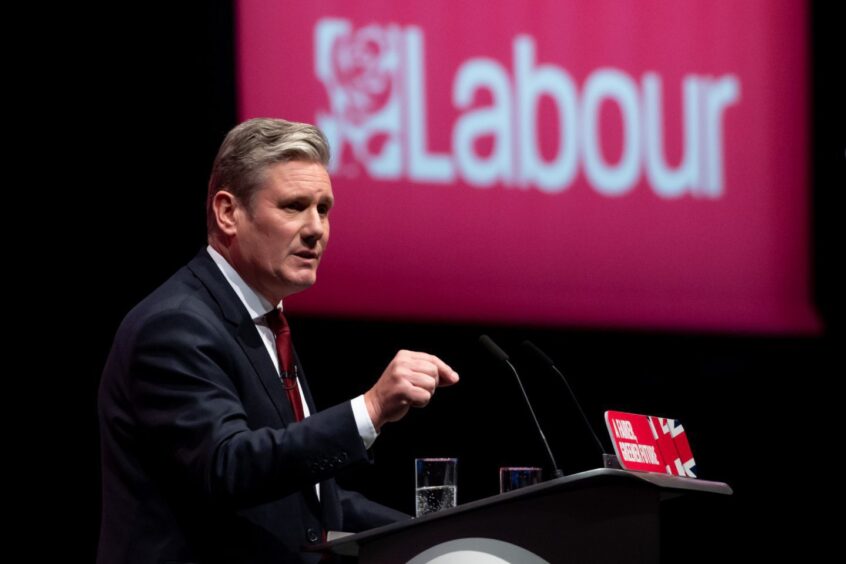
The warning about October’s budget sent out by Sir Keir Starmer will scarcely have gone unnoticed in the energy sector. How will the “black hole” affect plans and policies that are essential to Labour’s fundamental commitment to the energy transition?
Will ambitions to turn the UK into a “clean energy superpower” be delayed as a result? Or is delivering on that objective so critical to the economic growth on which most other policy objectives depend that the energy portfolio will escape largely unscathed?
As in every other part of the world with the same clean energy ambitions, substantial public investment will be required to lead the way in supporting and incentivising the private sector. The affordability of that commitment is critical to the whole enterprise.
Answers will emerge in deeds as much as words over the coming months. As in most matters, pragmatism will begin to assert itself. Does it, for example, really make sense in this economic environment to risk increased dependence on energy imports while the transition is in progress? The pretty obvious answer is that it does not, but let’s see how long it takes for that degree of pragmatism to emerge.
A new era
For most people, energy policy translates principally into the question of how it is going to affect their bills. This is far truer now than it was even 20 years ago, when it was possible to pursue a policy of promoting renewable energy through the Renewables Obligation, with minimal impact upon consumers.
Energy was relatively cheap and the additional cost was marginal. That policy provided a very strong platform for the growth of renewables in the UK – and particularly Scotland. The historic failure was to ensure that it also kick-started a major transition in our industrial base, as the vast majority of work was allowed to go abroad.
What we are now facing is of a different scale if net zero targets are to be met and the grid is to be revolutionised as promised. Labour’s objective is to “remove the barriers to facilitate the largest upgrade to national transmission infrastructure in a generation, bringing cheaper, cleaner power, energy security and jobs to every corner of the country”.
That, in itself, is a massive commitment that will incur huge costs for both the public and private sectors. One of the key questions for the months ahead is whether, and at what pace, it will survive the economic strictures which are now predicted. Much depends on the answers that emerge.
The grid is critical to the bigger picture of energy transition. If connections cannot be offered within reasonable timescales, then vast investments in offshore windfarms are not going to be made. It is already costing crazy sums to compensate developers for wind generation that has nowhere to go, but that’s small beer compared to what could happen in the future.
This is no longer an era where anyone talks of “cheap energy”. But the likelihood is that people will accept much that they might otherwise baulk at if they are persuaded it will bring the bills down, as well as help the environment.
This was a big part of Labour’s pre-election policy “sell”. It wasn’t just that “clean energy” was virtuous and necessary if net-zero targets were to be met. The transition was also going to bring down bills which may, in the long term, prove to be true – but in the short term is unproven and faces many obstacles.
Community benefit
The recent poll, carried out for the Aberdeen Chamber of Commerce on the acceptability of pylons to support the energy transition, reinforced this point – suggesting that the prospect of reduced energy bills would make more than half of those polled more likely to support new infrastructure in their areas.
That leads on to the whole question of community benefit and what communities and consumers are going to get out of these developments, particularly if they will be living next door to them.
This is an aspect of policy to which not only Labour but also the Scottish government could usefully pay attention, because it can offer a degree of certainty about the energy transition bringing tangible benefits (rather than hypothetical ones) for the future.
Community Energy Scotland, for example, has put forward an impressive case for a complete rethink of how “benefit” can be interpreted. As they point out: “Mass repowering of existing onshore wind generation will be a significant challenge in Scotland over the next ten to 20 years, but also creates opportunities”. The original deals can be revisited, and far more advantageous terms obtained.
There is no good reason not to legislate for a proportion of community ownership within onshore developments, as has long been the case in Denmark. Even more significantly for the long term, a National Wealth Fund could be created out of a modest levy on vast offshore windfarms. This is all feasible if the subject of “benefit” is treated seriously rather than as a fringe issue, as has been the case previously.
This kind of radical thinking is going to be necessary if public expectations are to be met. It is pretty clear that the new Labour government will be hard pressed to deliver everything it aspires to within the timescales it has set out – in energy policy, as with everything else. Pragmatism and creativity can be two sources of strength in circumventing the indisputable economic barriers that lie ahead.
Recommended for you
